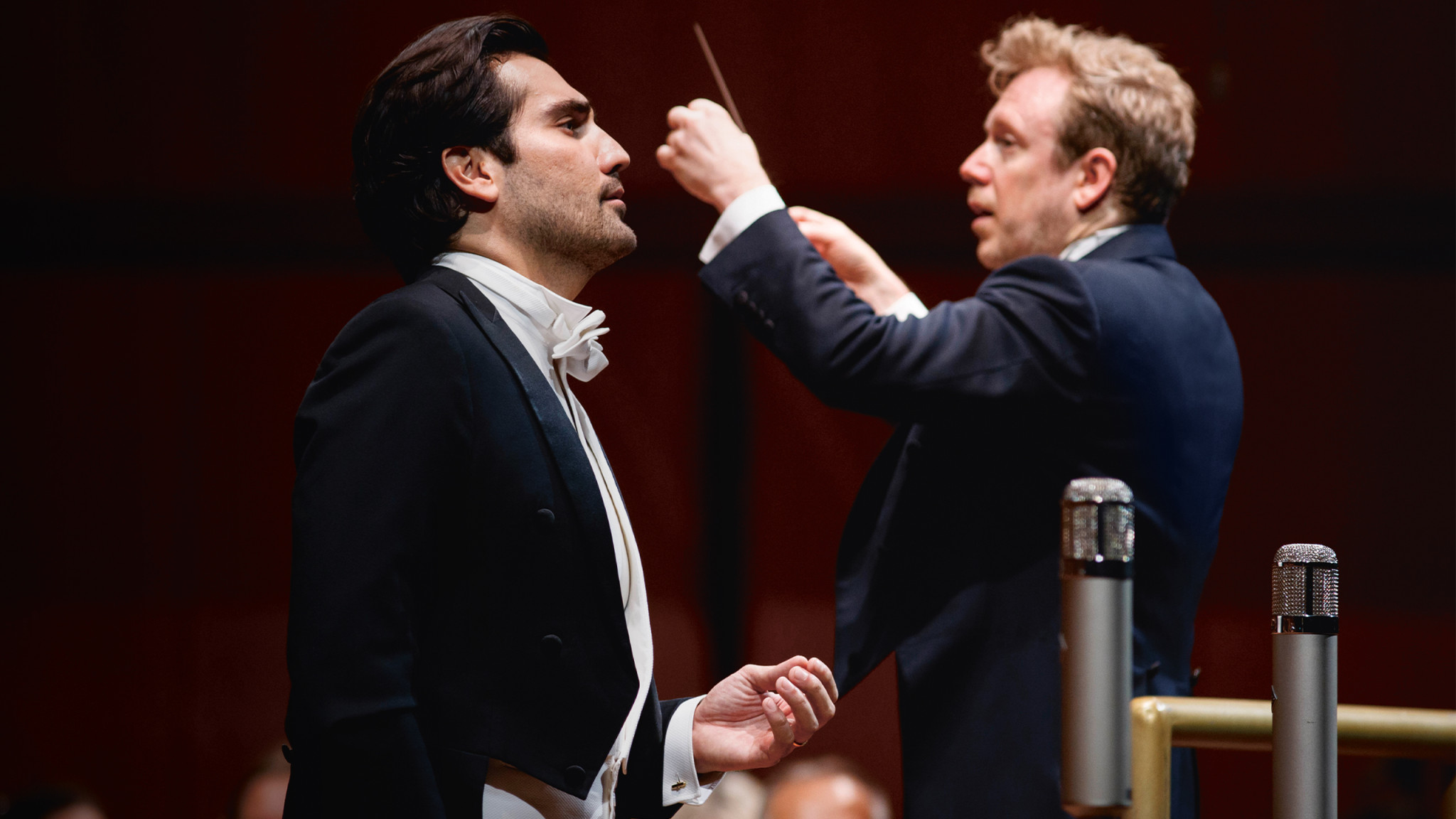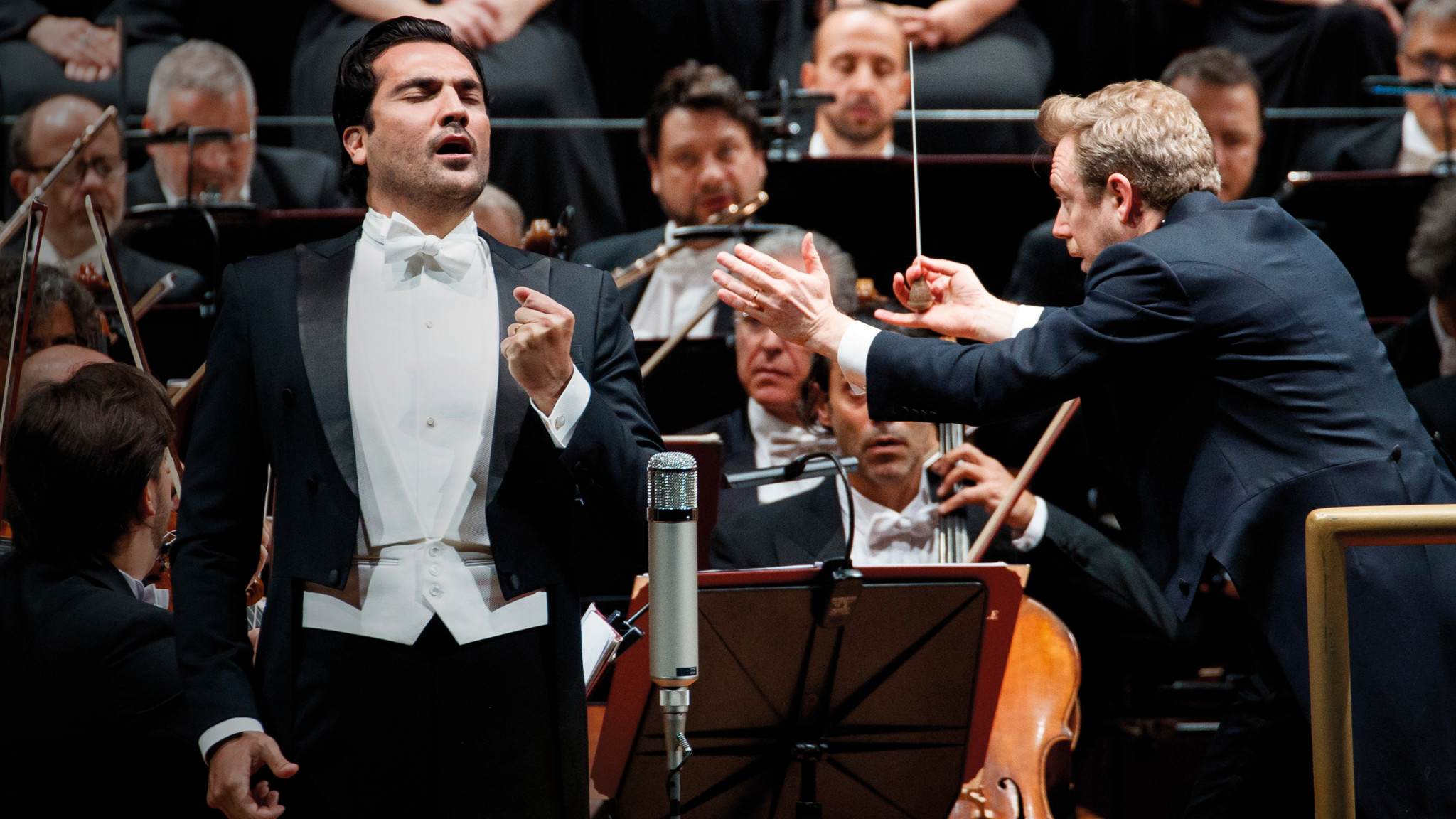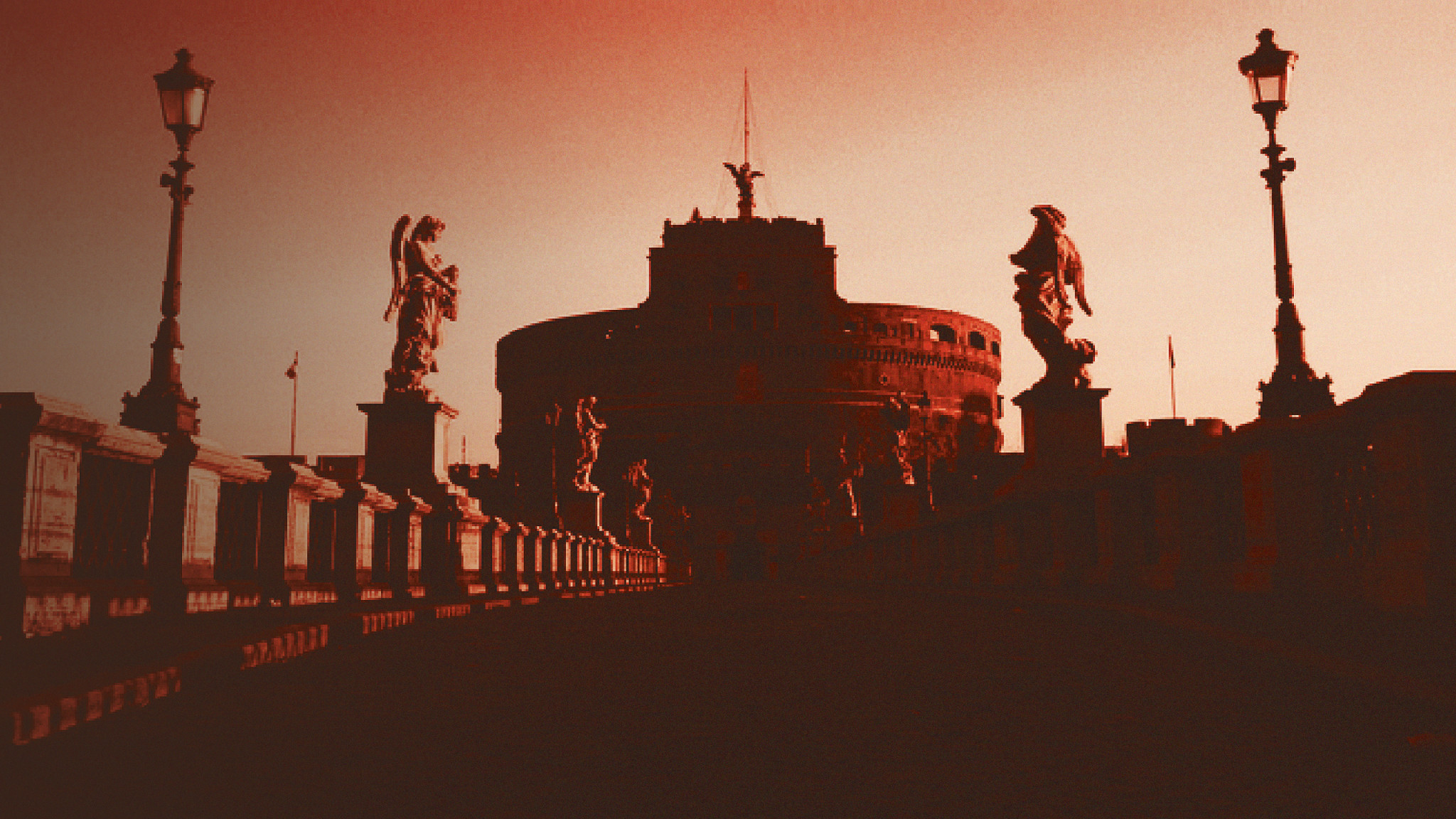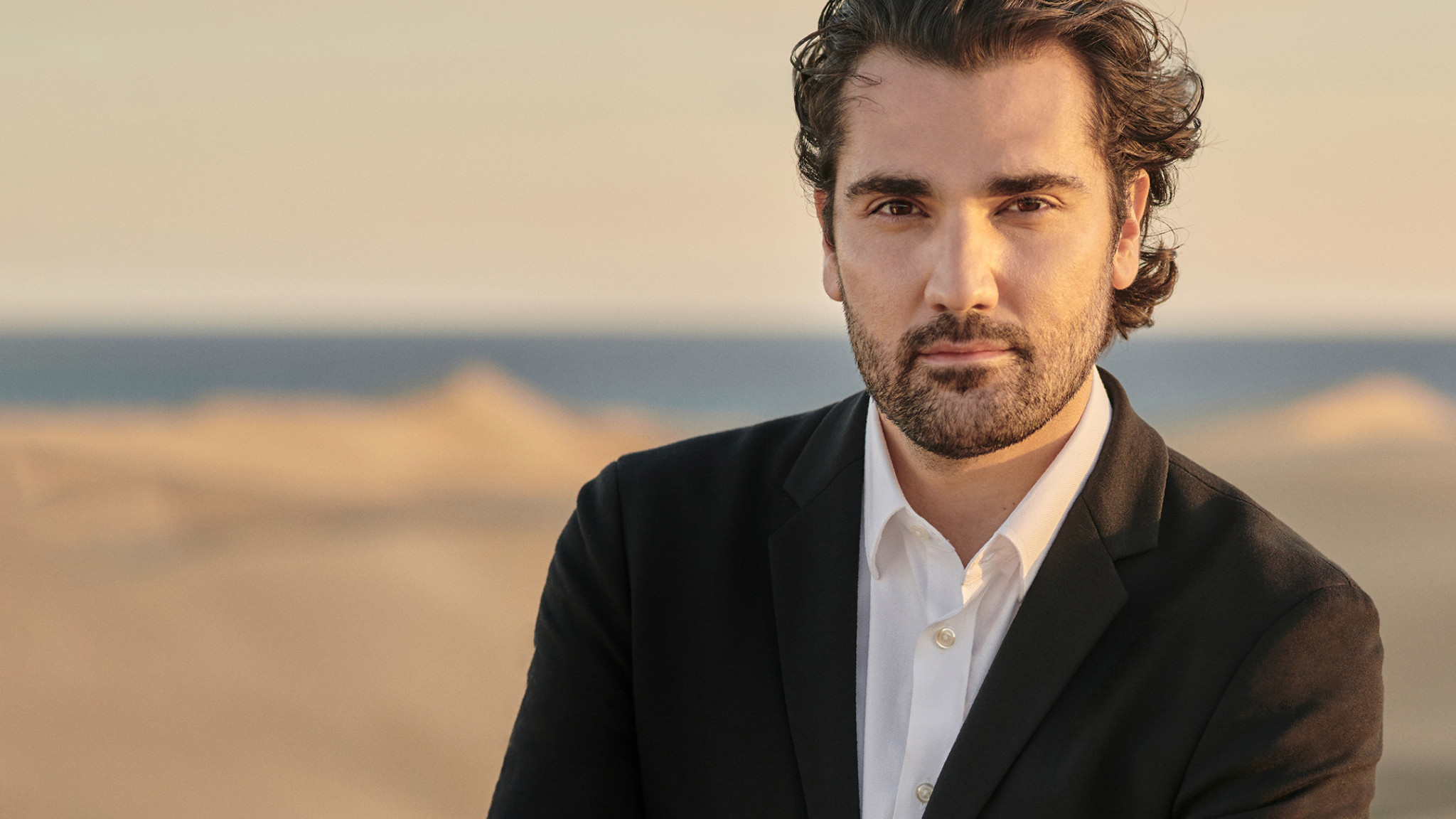Jonathan Tetelman’s Tribute to Puccini
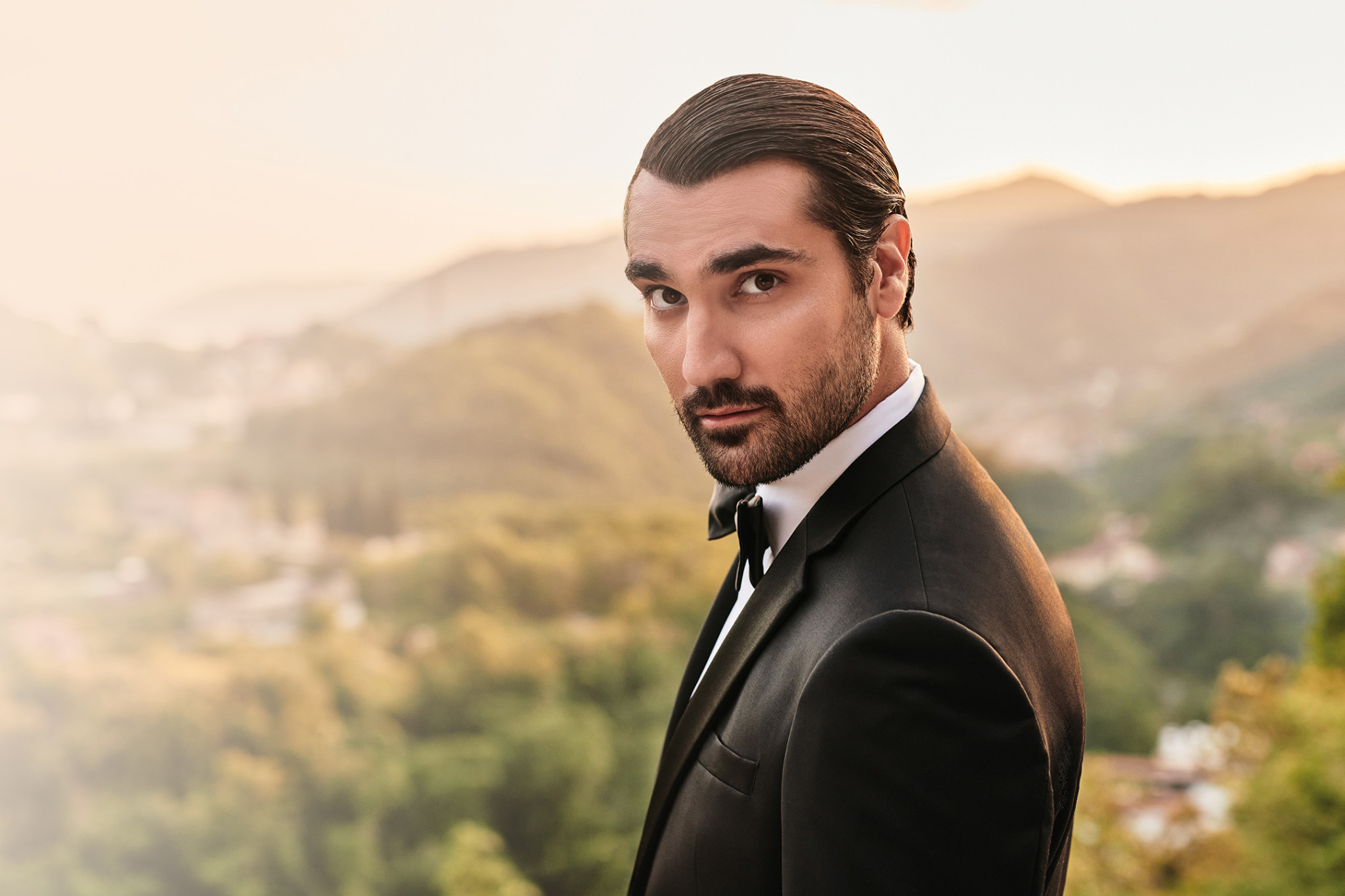
Jonathan Tetelman’s debut album for Deutsche Grammophon, Arias, was met with rave reviews on its release last summer, and won the singer a 2023 “Young Talent of the Year” Opus Klassik award. The Chilean-American tenor has now chosen to follow this success with a tribute to Puccini, the centenary of whose death falls in 2024. The Great Puccini presents extracts from nine operas, including such well-known arias as “Nessun dorma”, “Che gelida manina” and “E lucevan le stelle”, as well as numbers from less familiar operas such as Le villi and La rondine. The album was recorded earlier this year in Prague with the PKF – Prague Philharmonia, conducted by Carlo Rizzi, and features notable guest appearances from sopranos Vida Miknevičiūtė (Giorgetta in Il tabarro) and Federica Lombardi (Mimì in La bohème). The Great Puccini will be issued in all formats on 29 September 2023.
Jonathan Tetelman has established himself on the world operatic stage in a wide range of roles, but a recent focus on Puccini has seen him triumph as Rodolfo, Cavaradossi and Pinkerton, all of whom feature on his new album. His love of the composer dates back to the moment when, as a child, he heard Pavarotti sing “Nessun dorma”. He trained as a baritone but then took some time away from the classical world and worked as a DJ on the New York club scene. On returning to his vocal studies he transformed himself into a tenor and, at 26, sang his first Puccini role (Rodolfo), since when he has never looked back.
The Great Puccini also takes in works that are on Tetelman’s future schedule. “There are a few new roles on my immediate horizon,” he notes. “Luigi in Il tabarro, Ruggero in La rondine, Des Grieux in Manon Lescaut and Dick Johnson in La fanciulla del West. Further down the road lies Calaf from Turandot, and hopefully one day Roberto in Le villi…”
What draws him in every time is the complex nature of Puccini’s characters, and the demands this places on the singer. “I think it’s a lot about acting with the voice, not just with the body,” he says. That means finding a way of communicating the meaning of the words even to those who do not understand the language and, as he observes, “only certain composers give you that opportunity”.
His new album opens with Des Grieux’s “Donna non vidi mai”, a challenge for any tenor. Tetelman’s passionate interpretation will whet listeners’ appetite for his stage debut in the role. Among the other “hits” on The Great Puccini are “Nessun dorma”, which the tenor refers to as “the big one” – “the gateway to understanding and feeling the emotions of opera”, and both “Recondita armonia” and “E lucevan le stelle” from Tosca.
From the less frequently performed operas there are two arias from La fanciulla del West and Roberto’s nostalgic romanza “Torna ai felici dì” from Puccini’s first stage work, the opera-ballet Le villi. And, offering tantalising glimpses of two imminent debuts, The Great Puccini also includes Ruggero’s aria praising the delights of Paris from La rondine (Tetelman will make both his role and house debut at New York’s Metropolitan Opera next spring), and an ensemble number from Il tabarro (he plays Luigi for the first time at the Deutsche Oper this autumn).
Three music videos made on location in Tuscany will be released in August and September. “E lucevan le stelle” (18 August), filmed at the Villa Puccini in Torre del Lago; “Nessun dorma” (8 September), whose backdrop is the Carrara marble quarries; and “Donna non vidi mai” (29 September), shot in Puccini’s birthplace, Lucca, and the nearby coastal town of Pietrasanta.
